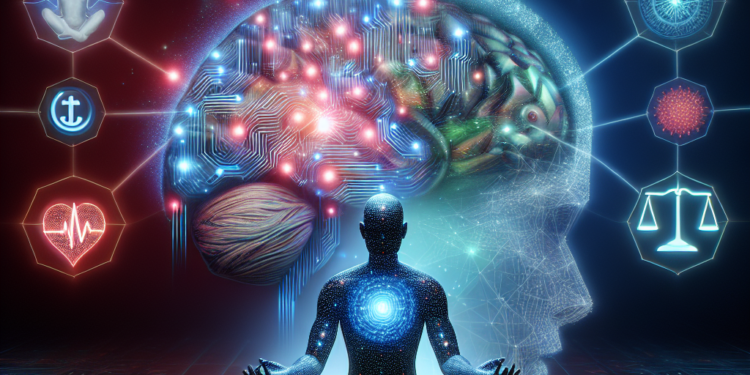In recent years, advancements in artificial intelligence (AI) technology have revolutionized many aspects of our daily lives, including healthcare. One area that has seen significant progress is the development of new therapies for mental health powered by AI. These cutting-edge therapies are changing the way we approach and treat mental health disorders, offering new and innovative solutions for those who are suffering.
Mental health disorders, such as depression, anxiety, and PTSD, are among the leading causes of disability worldwide. Traditional treatments, such as medication and therapy, have been effective for many individuals, but there is still a significant unmet need for more personalized and effective solutions. This is where AI-powered therapies come in.
AI has the ability to analyze vast amounts of data and identify patterns and insights that may not be apparent to human clinicians. This enables AI to develop personalized treatment plans tailored to the specific needs and characteristics of each individual patient. By utilizing AI, therapists can gain a deeper understanding of the underlying causes of a patient’s mental health disorder and develop more targeted and effective treatment strategies.
One of the most promising applications of AI in mental health therapy is the use of machine learning algorithms to analyze patient data and predict future outcomes. By analyzing a patient’s medical history, treatment response, and other relevant factors, AI algorithms can identify patterns that indicate which treatments are most likely to be effective for a particular individual. This can help therapists make more informed decisions about which interventions to recommend, leading to better outcomes for patients.
Another area where AI is making a significant impact is in the development of digital therapeutics. These are software-based interventions that deliver evidence-based therapeutic techniques through a digital platform, such as a smartphone app or virtual reality headset. Digital therapeutics can provide patients with convenient and accessible treatment options, allowing them to engage in therapy from the comfort of their own home.
One example of a digital therapeutic powered by AI is Woebot, a chatbot-based therapy program that uses cognitive-behavioral techniques to help individuals manage their mental health. Woebot interacts with users through a conversational interface, providing personalized support and guidance based on the user’s responses. Studies have shown that Woebot can be effective in reducing symptoms of depression and anxiety, making it a valuable tool for those seeking mental health treatment.
AI is also being used to improve the accuracy and efficiency of psychiatric diagnosis. By analyzing a patient’s speech patterns, facial expressions, and other behavioral cues, AI algorithms can identify potential signs of mental health disorders that may have gone unnoticed by human clinicians. This can lead to earlier detection and intervention, improving outcomes for patients and reducing the burden on healthcare providers.
In addition to diagnosis and treatment, AI is also being used to monitor and track patient progress over time. By analyzing data from wearable devices and other digital sources, AI algorithms can provide valuable insights into a patient’s mental health status and response to treatment. This can help therapists adjust treatment plans as needed and ensure that patients are receiving the most effective care possible.
Despite the many benefits of AI-powered therapies for mental health, there are still challenges that need to be addressed. One of the biggest concerns is the potential for bias in AI algorithms, which can lead to inaccurate or unfair treatment recommendations. To address this issue, researchers are working to develop more transparent and ethical AI systems that prioritize patient safety and well-being.
Another challenge is the need for more research to demonstrate the effectiveness of AI-powered therapies in real-world settings. While preliminary studies have shown promising results, more rigorous trials are needed to validate the impact of these interventions on patient outcomes. This will require collaboration between researchers, clinicians, and technology developers to ensure that AI-powered therapies are safe, effective, and accessible to those who need them.
Despite these challenges, the future of AI-powered therapies for mental health looks bright. With continued advancements in technology and a growing understanding of the complex nature of mental health disorders, AI has the potential to revolutionize the way we approach and treat these conditions. By harnessing the power of AI, therapists can provide more personalized and effective care to their patients, leading to improved outcomes and a brighter future for those struggling with mental health issues.













